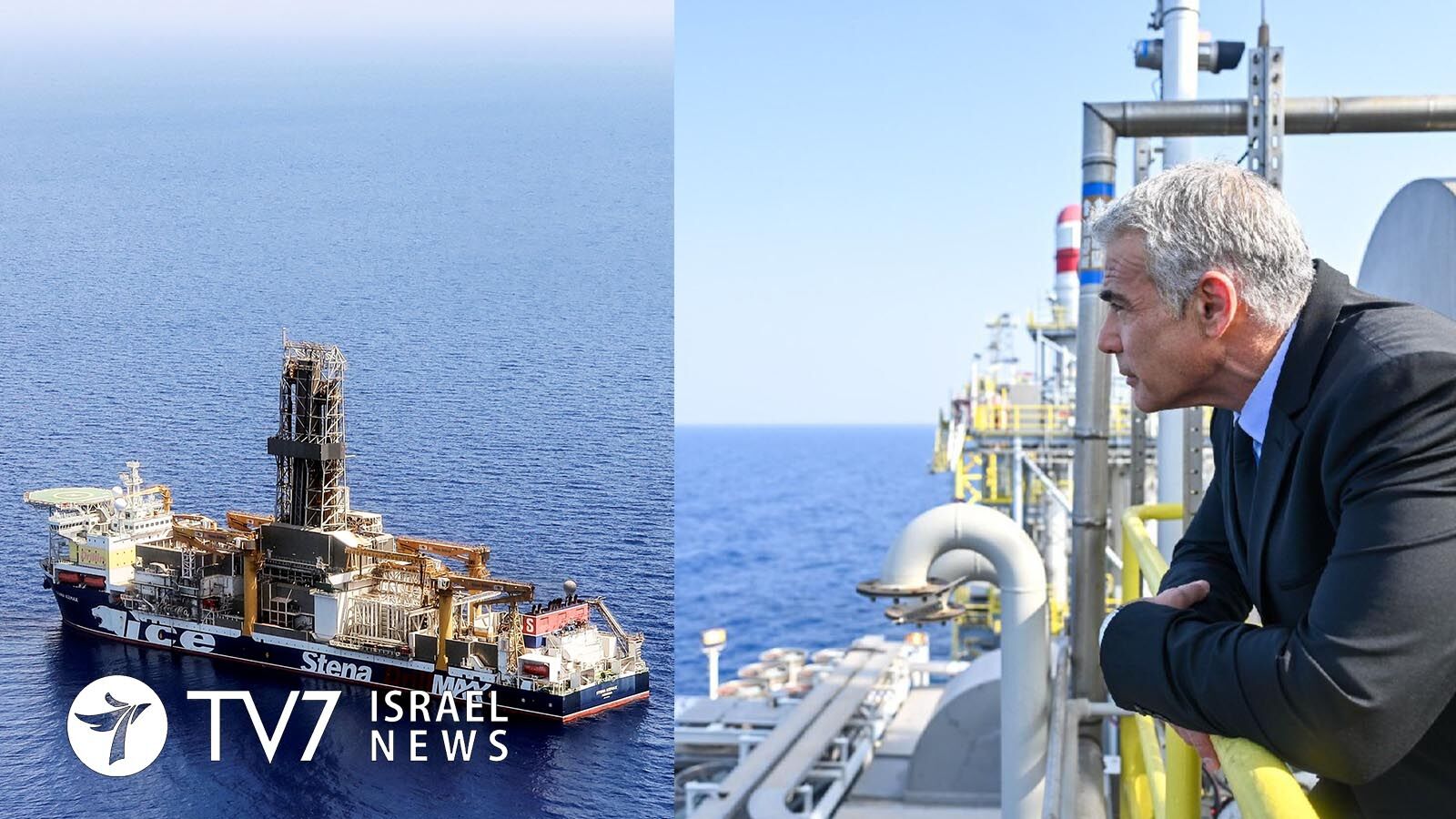Energy prices in Israel are expected to decline due to the development, while the Jewish State will also be able to increase its natural gas exports and assist Europe in handling the continent’s energy crisis, said Jerusalem.
By Erin Viner
“This place here is the energy and economic future of the State of Israel. Gas production from the Karish field will lower energy prices in Israel, turn Israel into a regional energy supplier, and help Europe take on its energy crisis. From here flows the gas that promises a lower cost of living. This is a huge achievement for the State of Israel,” proclaimed Israeli Prime Minister Yair Lapid at the Karish platform following a security inspection, according to a statement issued from his office (PMO).
Israel and Lebanon signed a United States-brokered maritime border deal last week, that opens the way for additional offshore energy exploration.
In the weeks running up to the agreement, development at Karish had raised tensions between the two countries and drew threats of war from the Iran-backed Hezbollah terror group.
Prime Minister Lapid reiterated that the sea agreement, like continuing gas production from the Karish platform, will ensure economic stability and energy security for the State of Israel for many years to come and will contribute greatly to lowering the cost of living, said the PMO statement.
Karish, located in the Mediterranean Sea about 80 km (50 miles) west of the coastal city of Haifa in Israel’s Exclusive Economic Zone (EEZ), has a capacity of 8 billion cubic metres (bcm). The initial capacity is up to 6.5 bcm/year, and commercial gas sales are expected to reach this level within six months.
Energean owns natural gas production rights from both the Karish and Tanin fields. Tanin, located 120 km (about 75 mi) off the coast of Israel, was the country’s seventh natural gas discovery.
The London-listed international hydrocarbon exploration and production company began producing natural gas from the Karish field and providing electricity to customers in Israel since last weekend.
“We have delivered a landmark project that brings competition to the Israeli gas market, enhances security of energy supply in the East Med region and brings affordable and clean energy that will displace coal-fired power generation, making a material impact to the environment,” said Energean Chief Executive Officer Mathios Rigas in a regulatory filing.
Gas is being currently being produced from the Karish Main-02 well, where the flow is steadily being increased. Production at the Main-01 and Main-03 wells is expected to get underway in about two and four weeks respectively, said Energean.
About 70% of Israel’s electricity comes from natural gas reservoirs in its EEZ, including the Tamar and Leviathan fields.
